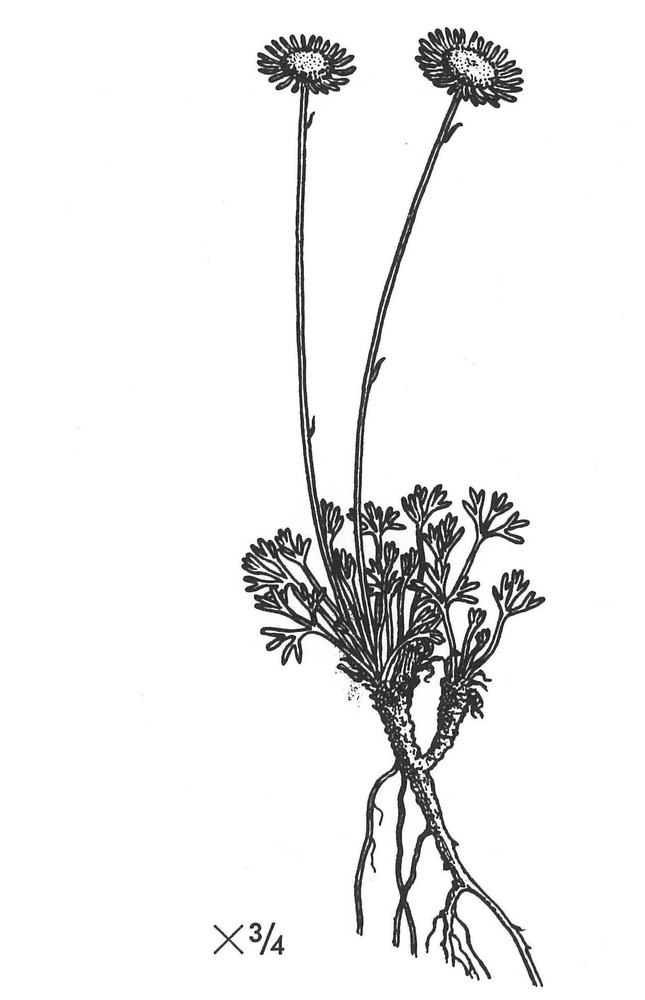| Erigeron compositus Pursh | |||
| |||
| Family | Compositae — APG family: Asteraceae | ||
| Synonyms | Erigeron gormani Greene. | ||
| Description | Densely caespitose; stems from stout caudex, simple or branched; basal leaves crowded, ternately to 2—4 times ternately lobed into linear segments, more or less glandular and hispid-hirsute to nearly glabrous; heads solitary; involucral bracts thin, subequal, purplish-tipped; ligules white, pink, or blue, sometimes lacking; achenes pubescent. | ||
| Ecology | Dry rocks. Described from the banks of the Kooskoosky River (Idaho). | ||
| Taxonomy notes | In the typical plant the leaves are 3—4 times ternate, with long divisions; in var. glabratus Macoun, 2-3 times ternate, with shorter divisions; in var. discoideus Gray, once ternate, with almost pulvinate growth. All types occur in Alaska, only slightly separated geographically. |
This is a digital representation of Eric Hultén’s ‘Flora of Alaska and Neighboring Territories: A Manual of the Vascular Plants’, which was published by Stanford University Press in 1968. The book was digitized by C. Webb (at UAMN) as part of the Flora of Alaska project, with funding by the US NSF (Grant 1759964 to Ickert-Bond & Webb), and with permission of Stanford University Press. Data and images © 1968 Board of Trustees of the Leland Stanford Jr. Univ. Usage licence: Creative Commons BY-NC-SA 4.0. NB: You may find OCR errors; please refer to the hard-copy if in doubt.
